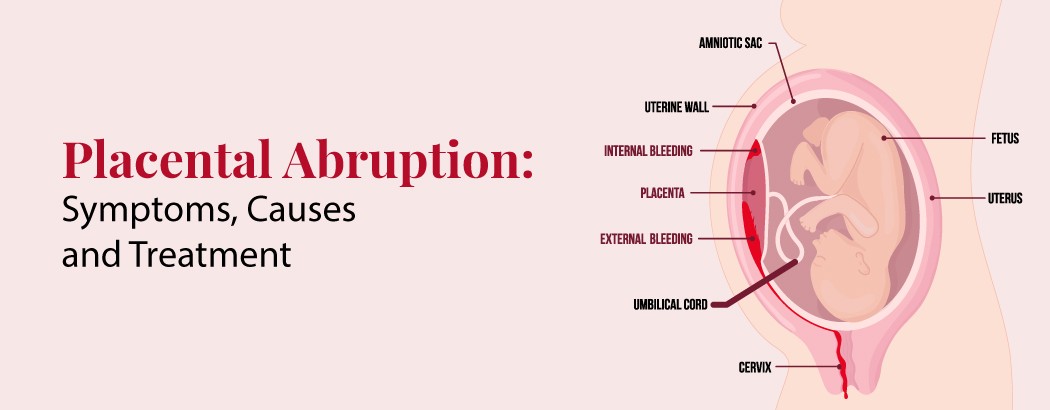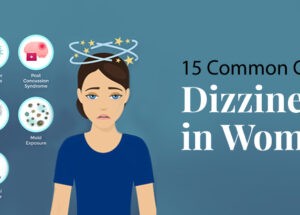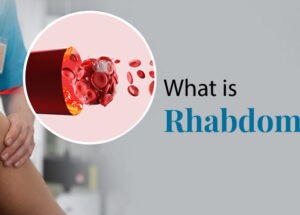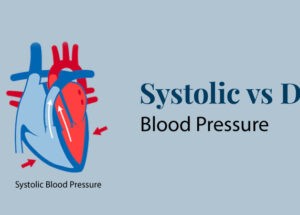Heart Failure: Symptoms, Causes, and Types
August 1, 2022

Heart failure is a chronic disorder in which your heart is unable to continuously pump blood efficiently enough to meet your body’s demands. Exercise, medication, and maybe surgery are all part of the course of treatment for heart failure. Heart failure, despite the name suggesting otherwise, is the inability of the heart to pump blood as effectively as it should. Your organs may suffer harm when your heart’s pumping capacity is reduced, and fluid may build up in your lungs.
Contents
Types of Heart failures
Left-sided heart failure:
Heart failure with reduced left ventricular function (HF-pEF)
Your heart’s left ventricle, the lower left chamber, enlarges and becomes unable to squeeze (contract) forcefully enough to deliver enough oxygen-rich blood to the rest of your body.
Heart failure with preserved left ventricular function (HF-pEF)
The lower chambers of your heart, known as the ventricles, pump and contract appropriately, but they are thicker and stiffer than they should be. Your ventricles are unable to fully relax and fill up as a result. Your heart contracts, pumping less blood to the rest of your body because there is less blood in the ventricles.
Right-sided heart failure
The right side of your heart is susceptible to heart failure as well. The most frequent cause of this is heart failure on the left side. Other factors include troubles with other organs and certain lung conditions.
What is congestive heart failure?
Your heart is in this state when it is unable to pump enough blood through your body. This leads to an accumulation in other parts of the body also, most frequently your lungs and lower extremities (feet/legs).
Complications of heart failure
A few complications of heart failure include:
- Irregular heartbeat.
- Sudden cardiac arrest.
- Heart valve problems.
- A collection of fluid in your lungs.
- Pulmonary hypertension.
- Kidney damage.
- Liver damage.
- Malnutrition
Stages of heart failure
Chronic heart failure is a condition that deteriorates over time. There are four phases of cardiac failure (Stage A, B, C, and D). From “high risk of developing heart failure” to “advanced heart failure,” there are various phases.
Stage A
Heart failure is not yet seen in Stage A. If you have a history of heart failure in your family or you have one or more of the following medical conditions, you are at a high risk of getting heart failure. One or more of these medical conditions will increase the risk of heart failure:
- Hypertension.
- Diabetes.
- Coronary artery disease.
- Metabolic syndrome.
- History of alcohol abuse.
- History of rheumatic fever.
- Family history of cardiomyopathy.
- History of taking drugs that can damage your heart muscle, such as some cancer drugs.
Stage B
Heart failure is not yet seen in stage B. It indicates that despite the fact that you have never experienced heart failure symptoms, your doctor has diagnosed you with systolic left ventricular dysfunction. An echocardiogram (echo) typically reveals an ejection fraction (EF) of 40 percent or less in patients with Stage B heart failure. People who have heart failure and decreased EF (HF-rEF) for any reason fall into this category.
Stage C
People with Stage C heart failure have been diagnosed with the ailment and either currently experience or have previously experienced its signs and symptoms.
There are a lot of plausible reasons for heart failure, some of which include:
- Shortness of breath.
- Feeling tired (fatigue).
- Less able to exercise.
- Weak legs.
- Waking up to urinate.
- Swollen feet, ankles, lower legs, and abdomen (edema).
Stage D and Reduced EF
Stage D HF-rEF patients have severe symptoms that don’t improve with medication. The last stage of cardiac failure is this.
Symptoms of heart failure
Symptoms of heart failure consist of:
- Shortness of breath.
- Feeling tired (fatigue) and having leg weakness when you’re active.
- Swelling in your ankles, legs, and abdomen.
- Weight gain.
- Need to urinate while resting at night.
- Rapid or irregular heartbeats (palpitations).
- A dry, hacking cough.
- A full (bloated) or hard stomach, loss of appetite, or upset stomach (nausea).
There may be instances when you just have minor symptoms or none at all. This does not imply that you are free from heart failure. Heart failure symptoms can be moderate to severe and may come and go. Heart failure, regrettably, becomes worse with time. You can experience more or different indications or symptoms as it becomes worse. If you experience any new symptoms or if your current symptoms worsen, you should inform your doctor right away.
Causes of heart failure
Although your chance of developing heart failure doesn’t vary as you age, you’re more likely to do so. Heart failure can be brought on by a variety of illnesses that harm the heart muscle. Some of the common causes of heart failure include:
- Heart attack.
- Cardiomyopathy.
- Congenital heart disease
- Diabetes.
- Hypertension
- Arrhythmia
- Kidney disease.
- Having obesity.
- Tobacco and recreational drug use.
- Chemotherapy can lead to heart failure
Diagnosis for heart failure
Your healthcare professional needs to be aware of your symptoms and medical background in order to evaluate if you have heart failure. They will also ask you questions regarding:
- Various other medical disorders you have, like diabetes, kidney disease, angina, high blood pressure, high cholesterol, coronary artery disease, or other heart issues.
- If there is a family history of sudden death or heart attack
- If you use tobacco or smoke.
- Your alcohol consumption.
- If you’ve undergone radiation or chemotherapy.
- Your medications
Importance of ejection fraction (EF)
One approach to gauge the severity of your disease is to look at your ejection fraction (EF). If it’s below normal, you might be experiencing heart failure. Your ejection fraction provides your doctor with information on how well your left or right ventricle is pumping blood. Because your left ventricle is your heart’s major pumping chamber, your EF reading typically refers to how much blood it is pushing out.
Your EF can be measured using a number of non-invasive methods. Your healthcare professional can use this information to decide how to treat you or determine whether a treatment is effective.
Treating heart failure
The sort of heart failure you have and, to some extent, what caused it will determine your course of treatment. Every treatment strategy includes both medication and dietary recommendations. The ideal course of treatment for you will be discussed with you by your healthcare professional. Regardless of gender, treatment is the same.
You progress to the next stage of heart failure as your heart muscle pumps less blood to your organs as heart failure worsens. Since you cannot advance through the stages of heart failure backward, the aim of treatment is to stop you from doing so or to stop the course of your heart failure.
Stage A treatment
The common treatment for people with Stage A heart failure includes:
- Regular physical activity and walking.
- Quitting tobacco use.
- High blood pressure treatment
- Process of lowering cholesterol
- Quitting drugs & alcohol
Stage B treatment
The common treatment for people with Stage B heart failure includes:
- Treatments as listed for Stage A heart failure.
- If you aren’t currently on one, use an ACE-I inhibitor or an ARB (angiotensin II receptor blocker).
- If you have had a heart attack and your EF is at or below 40%, you should start taking a beta-blocker.
- If you have diabetes and an EF of 35 percent or less, have had a heart attack, or both, you should take an aldosterone antagonist.
- Possible surgery or intervention for congenital heart disease, valve disease (valve replacement or repair), coronary artery obstruction, and heart attacks.
Stage C treatment
The common treatment for people with Stage C heart failure includes:
- Treatments as listed for both stage A and B heart failures.
- Beta-blocker.
- If a vasodilator medication (ACE-I, ARB, or angiotensin receptor/neprilysin inhibitor combination) and beta-blocker do not help your symptoms, consider an aldosterone antagonist.
- If previous therapies don’t relieve your symptoms, use hydralazine and nitrate together.
- If your heart rate is greater than 70 beats per minute and you are still experiencing symptoms, you should take heart-rate-lowering medication.
- If symptoms persist, a diuretic (sometimes known as a “water pill”) may be administered.
- Sodium (salt) restriction in your diet.
- Keep daily weight records If you gain or lose more than four pounds, let your doctor know.
- A possible limitation of fluids is recommended.
- Potentially effective cardiac resynchronization therapy (biventricular pacemaker).
Stage D treatment
Treatments from Stages A, B, and C are typically used in the treatment of patients with Stage D heart failure. Additionally, it includes assessment for more sophisticated treatment alternatives, such as:
- A heart transplant.
- Ventricular support mechanisms.
- Heart operation.
- Intravenous inotropic medication infusion that never stops.
- Palliative care.
- Investigate treatments.
Prevention of heart failure
Although some risk factors, such as age, family history, and race, are beyond your control, you can alter your lifestyle to improve your chances of avoiding heart failure. Among the things you can accomplish are:
- Maintaining an appropriate weight.
- Eating meals that are heart-healthy.
- Practising regular exercise.
- Controlling your stress.
- Quitting tobacco & alcohol use.
- Quitting drugs
- Attending to any additional medical issues you may have that could enhance your risk.
People also ask
1. What are the 4 types of heart failure?
- Left-sided heart failure
- Right-sided heart failure
- Diastolic heart failure
- Systolic heart failure
2. What happens if you get heart failure?
Heart failure does not imply that the heart is no longer functioning. Instead, it indicates that the heart performs less effectively than usual. Blood pressure in the heart rises and blood flow through the heart and body is slowed down due to a number of potential causes. As a result, the heart is unable to pump the body’s requirements for oxygen and nourishment.
3. Do you sleep a lot with heart failure?
Heart failure and sleep are related in a reciprocal manner. Heart failure increases your risk of developing other health problems, such as insomnia. It is possible for fatigue, shortness of breath, and a general feeling of exhaustion to result from your heart beating excessively.
4. What is the main cause of heart failure?
One of the most prevalent types of heart disease and the leading cause of heart failure is coronary artery disease. Fatty deposits that accumulate in the arteries cause the condition, which restricts blood flow and increases the risk of a heart attack. The sudden occlusion of the coronary artery results in a heart attack.








